News
Economic hardship: Holding Governors, Council Chairs accountable

By Waheed Adekunle
The current socio-economic reality in the country has called for the attention of all and sundry particularly the commoners who have practically become the victims of circumstance in the face of maladministration and malfeasance being meted out to them by the key actors in the states and local government areas in the country.
The situation, has no doubt, become a clarion call for all to continuously hold the governments accountable not only on their statutory obligations, but also on the need to be more responsible and responsive to the general welfare, wellbeing, yearnings, plights and aspirations of the citizens.
In the face of the present hardship that has been biting harder on daily basis, it has become imperative to see the present economic situation in the country as a wakeup call to re-energize and reactivate genuine leadership and raise the people’s consciousness to a responsible and responsive leadership at all levels, if we are genuinely serious as a nation to tackle the menace headlong.
There is no doubting the fact that the removal of fuel subsidy in the country has not only brought about socioeconomic quagmire on the corporate existence of Nigeria and Nigerians but also resuscitated the scourge of poverty and hunger in the land, hence the swift intervention of all, as the latter keeps on biting harder and harder.
Recall that President Bola Ahmed Tinubu led-federal government had during his swearing in ceremony, on May 29, 2023, announced the total removal of the fuel subsidy in his speech, an Executive Verdict that took immediate effect nationwide.
While it is not out of place to acknowledge the administrative acumen and rare courage exhibited by President Tinubu on the total removal of the ‘cancerous tumor’ called subsidy, it is also imperative to set the record straight as to the intents behind the moves, which is to stabilize and stimulate the economy and as well reposition the country for the betterment of all.
Findings have, however, shown that the national income had witnessed a tremendous improvement to the extent that the revenues and statutory allocation to each of the three tiers had jerked up exponentially due to the humongous amount of money coming into their various coffers on a monthly basis.
Since the inception of President Tinubu’s government, the resources to the federal, states and local governments had increased by over 200 percent so far.
The federal government; the 36 federating states and 774 local governments have been smiling to banks every month to withdraw their juicy shares of the commonwealth since the removal of the fuel subsidy.
Taking it from May 29, 2023 when President Tinubu announced the removal of the subsidy, the Federation Account Allocation Committee (FAAC) has been disbursing huge funds ever existed in the history of our dear country.
FAAC disbursed the sum of N872.55 billion to the three tiers of government in April, 2023 from the total revenue generated in March. This figure jerked up a bit in May 2023 after the inauguration of President Tinubu as a total sum of N976.34billion was shared between the three tiers of government for the month of May.
In the same vein, the three tiers of government shared N1,134.03trillion for the month of June while a total sum of N1.89trillion was shared between the three tiers of government for the month of July. Also, over a trillion naira totalling N1.80trillion was equally shared in August.
For the month of September, N903,480billion was shared. In October, N906.955billion was shared and for the month of November, N1,088.783trillion was shared while N1.783trillion was shared in December, 2023 respectively.
FAAC records showed that the allocation to the state governments, within January to December, 2023, indicated that Delta state received the highest FAAC allocation, receiving N483.57 billion; followed closely by Rivers and Akwa Ibom States, pocketing N426.84 billion and N380.1 billion, respectively.
Lagos State, Bayelsa State, and Kano State also featured prominently, securing N371.39 billion, N268.34 billion, and N261.37 billion, respectively.
Oyo State received N207.37billion, Katsina State got N191.43billion; Borno State received N176.94billion; Kaduna State received N170.91billion; Jigawa State got N170.74; Benue State received N161.99billion; Edo State received N161.69billion; Anambra state received N161.54billion; Ondo State got N156.33billion; Niger State received N155.62billion; Imo State got N152.39billion; Sokoto State got N146.19billion; FCT received N145.3billion; Bauchi State got N144.98billion; Kebbi State received N144.93billion; *Osun State received N141.48billion*; Adamawa State received N139.14billion as Kogi State got N136.97billion respectively.
Enugu State received N133.29billion; Abia State received N125.92billion; Yobe State got N124.14billion; Taraba State received N123.05billion; Plateau State got N121.71billion; Ogun State received N120.72billion; Zamfara State received N119.17billion; Cross River State got N118.8billion; Kwara State received N115.11billion; Nasarawa State received N111.54billion; Ekiti State received N107.5billion; Ebonyi State got N107.45billion while Gombe State received N99.05billion respectively.
The data-driven and research-based analysis indicates the average FAAC allocation to states from January to May (pre-subsidy) and June to December (post-subsidy) as revenue available to the three tiers of government has tripled.
Aside from these favourable lion shares, the state governments have been constantly receiving different kinds of financial support from the federal government in form of grants, in order for them to lessen the effect of subsidy on the people, in their various states.
In Osun state for instance, Governor Ademola Adeleke led-PDP government, received, outside statutory allocation, a total sum of N13.5billion cash from the federal government purposely released to the state to stimulate her economy and cushion the sufferings occasioned by fuel subsidy removal on the good people of the state.
Osun, in 2023 received N2 billion naira as (palliative grant) from the federal government to cushion the adverse effect of subsidy. The state equally got N7billion as a special fund from the Fuel Subsidy Savings Account and later received N4.5billion FG-Care refund, late last year.
It is on record that the federal government had earlier donated over 17,000 50kg bags of rice and other food items to Osun state for distribution, aside other tangible and intangible supports gotten through consistent hand of fellowship being extended to the state that was primarily designed to cushion the effect of subsidy on the masses.
Though, the continued support from the federal government has become a moral burden on some states, while others have been judiciously using the money to address the needs and aspirations of their people. The good example of this could be attributed to the wonders being performed by Borno, Plateau, Benue, Ebonyi, Akwa Ibom, Ekiti, Oyo, Ogun, Taraba, Jigawa, Kaduna, Yobe, Lagos states among others since subsidy regime.
Surprisingly, Osun state that earns even more than many of its counterparts, going by the allocation ‘sharing formula’ couldn’t match up, using standard measure mechanism – Key Performance Indicator “KPI,” as the state continues to lag behind in all aspects of the economy.
Going by the analysis above, it shows that Osun received close to N150billion as statutory allocation in just one year, but the raging questions agitating minds are; what were the things that the state government used the funds for? Were the funds not sufficient enough to turn around the socioeconomic fortune of our dear state within a year? Why was the larger chunk of the money not used to offset the backlog of salary and pension arrears of the workforce? What is the significance of the fund on the standard of living of the ordinary citizens during the period under review? These among others are to be answered if the state government is transparent and accountable as it claimed to be.
But the truth is, there’s nothing to point at as to the impact of the humongous funds pumped into the economy of the state by the federal government thus far. The concern is that, if Osun had applied the funds received as support judiciously, Osun would have moved out of stagnation, as some level of relief would have been experienced by the citizens, particularly the vulnerable.
When the state received the first tranche of palliative funds amounting to a whooping sum of N2billion out of N5billion promised by the federal government, the only thing the PDP-led government in Osun, could do, was to repair the rickety vehicles that had been abandoned for years, which the state claimed to have expended millions of naira on.
Assuming without conceding that the N25million claimed to have been expended for the repair of the abandoned vehicles was done with a clean heart, the question is that, is it the repaired vehicles that Osun people deserve from the current administration? This question is necessary because some states that are not as rich as Osun were using same funds purposefully to purchase new vehicles for the use of the masses, among other tangible-life-changing initiatives.
It is unfortunate that since the state government claimed to have expended N25million naira to repair the rickety vehicles, the remaining funds in its custody has been pocketed, leaving the residents in untold hardship as many have been hurling abuses on the federal government forgetting that it is the state that should be held responsible for the woes.
Similarly, N7billion special intervention fund received by Adeleke’s government last year is yet to be accounted for nor used for the purpose it was meant for. One would have expected the government to come up with modalities on how the funds would be used and what it would be used for that would benefit the generality of the masses, but quite unfortunate, the figure was a mere rhetoric, as nothing comes out of it up until now.
Though, the media aides to the Governor as well as his party – the PDP have been mischievously defending the wickedness, claiming that the state government has been transparent and accountable, even when they refused to account for the stimulus packages received thus far, as well as billions of naira received as allocation and special intervention funds in the last 15 months of being at the helms of affairs.
While it is pathetic that Osun has been failing in fulfilling its responsibility to address the yearnings of the people, in spite of the humongous funds coming into her coffers every month, it is imperative to challenge the state government to account for all it has received thus far, particularly, since the last year’s June when the subsidy on fuel was removed.
As discerning citizens who are unrepentantly concerned about the growth and development of the society, no matter ‘whose ox is gored’, it is high time we call out the state actors and council bosses to justify all they have received so far vis-a-vis their performance.
It is also important to appeal to the stakeholders in Osun and other states to swiftly swing into action by intervening in the finances of their respective states, if truly we are all resolute to bring out the much-anticipated opportunities in difficulties and prosperity in hopelessness.
The era of blame-shifting has gone, the time for genuine leadership and good governance in all strata is now. Reality must be faced for national socioeconomic growth, political integration and all round development. Pointing an accusing finger at the federal government should rather be downplayed for now, as it is now clear that the state governments have been the direct beneficiaries of the proceeds of the fuel subsidy since June last year.
While it is constitutionally understandable that the federal government must regularly release funds to states and local governments in its bid to achieve its ‘Renewed Hope Agenda’, it is also important to implore the key players at the Centre to thread with caution as it is now obvious that many of the states are deliberately compounding the economic woes going by the way and manner some of them have been managing the affairs of their respective states.
If, for instance, Osun has been using the funds judiciously as expected, there would have been great succour to the citizens particularly the workforce (both serving and retirees) who ought to have been receiving the Wage Award since July last year from the funds released to the state but this wasn’t actualize until late December, 2023.
It is unfortunate that a state like Osun that had achieved little or nothing on its electoral promises could at this critical time be thinking of N100billion phoney projects at the detriment of the state and her citizens. It is obvious that nothing meaningful or pragmatic has been going on in the state let alone the local government areas as many of these Councils have been at the mercy of the state for survival. Saying they have been crippled, is to say the least.
As a matter of exigency, the time is now for the citizens to rise to the occasion and begin to ask mind-blowing and thought-provoking questions from the state and local government administrators in order for them to be more accountable, transparent, responsible and responsive to their constitutional obligations.
May God heal our land!
News
I have one less school fees to pay – Gov. Makinde remarks as his daughter graduates from Yale (See Pictures)


The Governor of Oyo State, Engr.Seyi Makinde has expressed relief on the graduation of his daughter from Yale University.
Makinde on his instragram is quoted to have expressed relief that he has one less school fees to pay.
The Governor prayed that his daughter will have the best in this new chapter of her life noting that her hardworking and diligence has paid off.
Well wishers who attended the graduation include the First Lady of Oyo State, Tamunominini Olufunke Makinde, Governor of Kwara state, Abdulrazaq AbdulRahman, Hon. Adedeji Olajide representing Ibadan North West/South West Federal Constituency, amongst others.


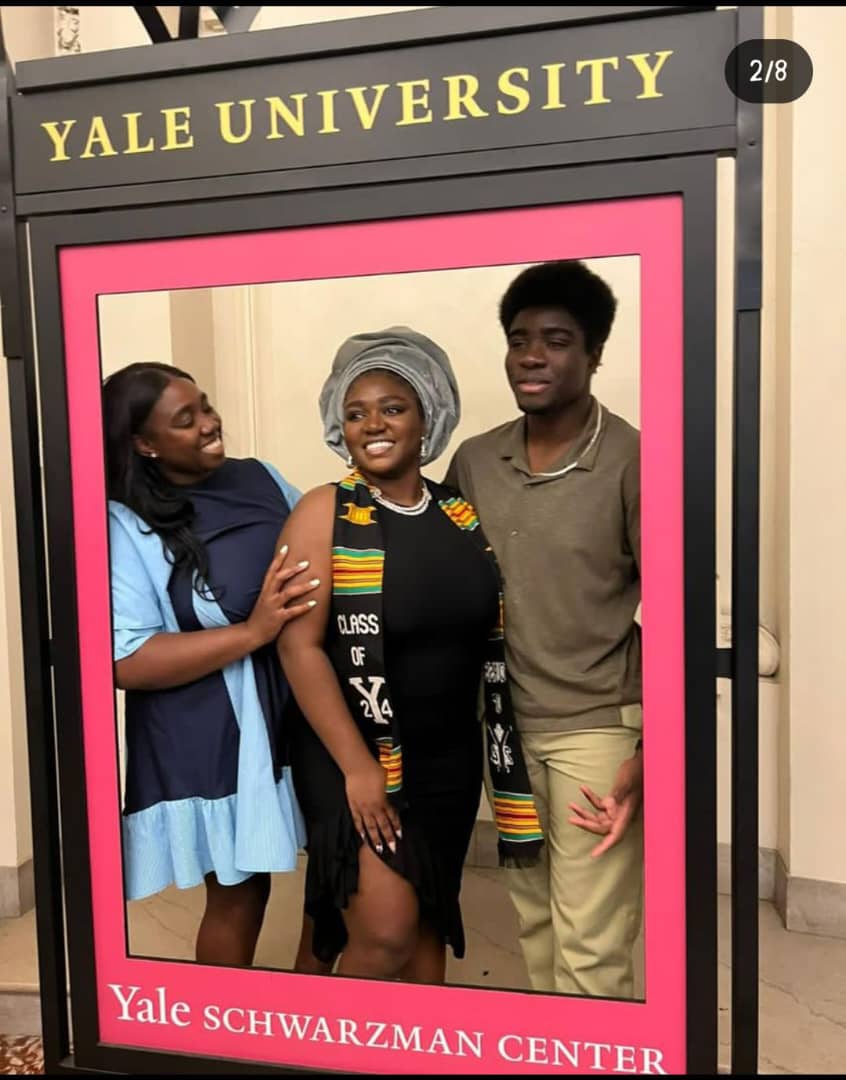

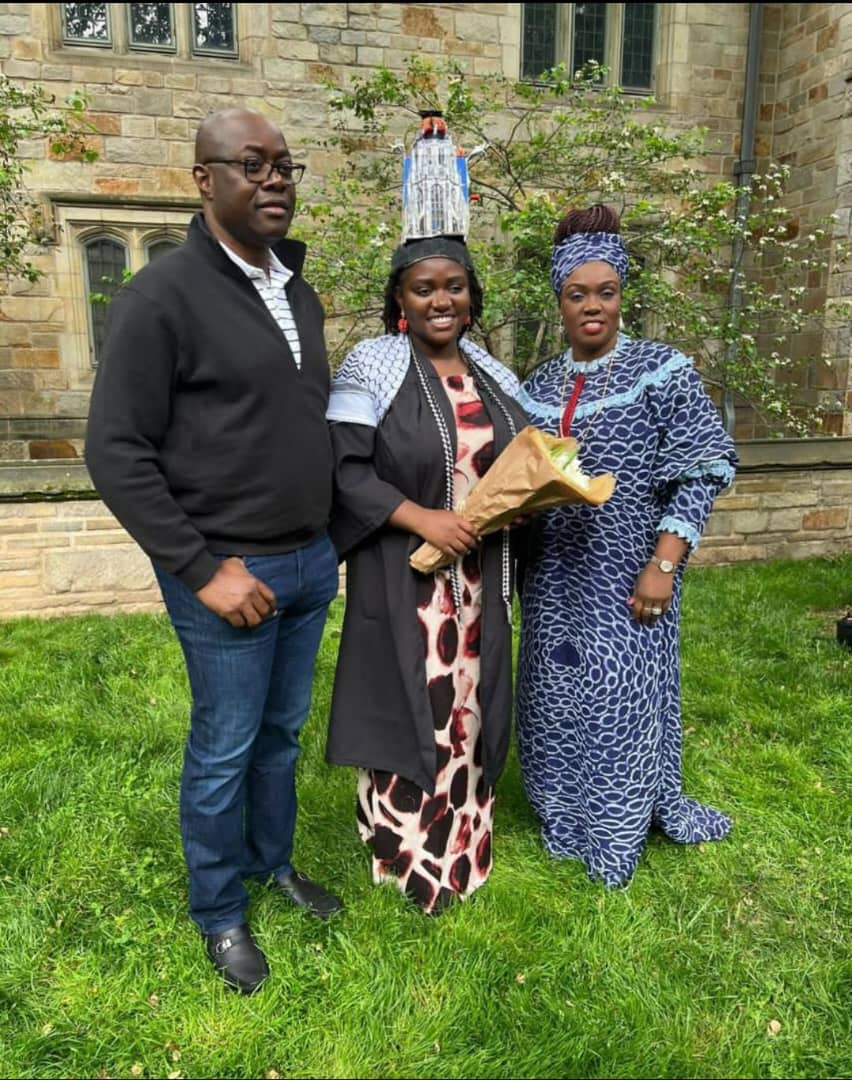



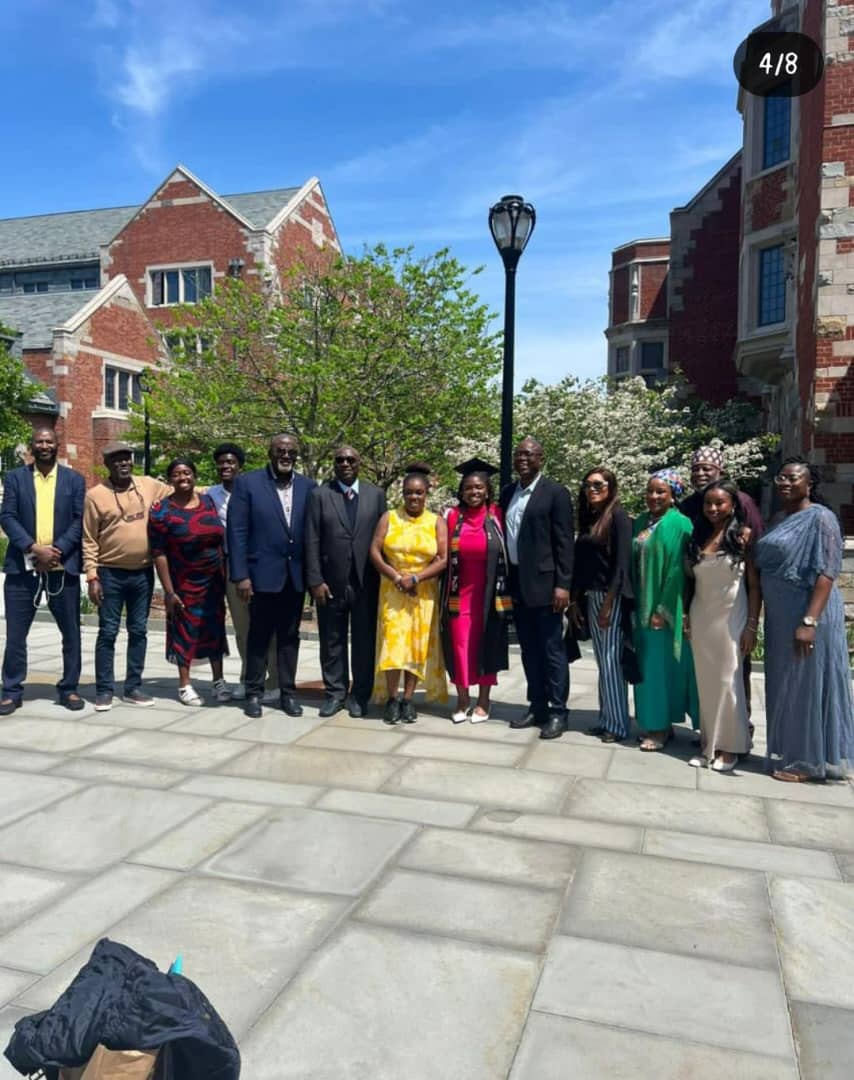

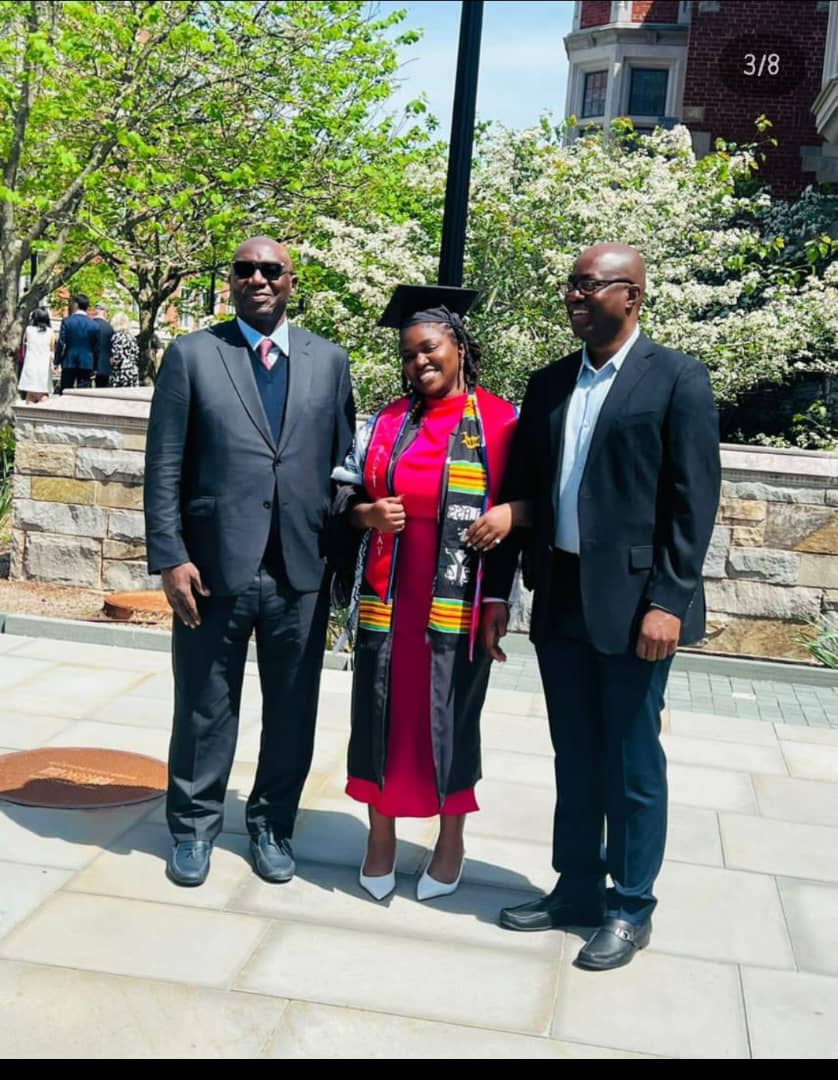

News
1,681 vulnerable Lagos residents get N1bn financial assistance
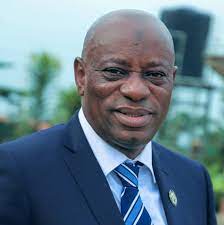

By Sodiq Adelakun
The Lagos State Office of Political, Legislative and Civic Engagement has provided financial assistance worth N1 billion to 1,681 vulnerable residents, aimed at alleviating economic hardship.
According to Dr. Tajudeen Afolabi, Special Adviser to the Governor on Office of Political, Legislative and Civic Engagement, this financial support is a demonstration of the state government’s commitment to the welfare of its citizens.
Speaking on Monday during the ongoing ministerial press briefing to mark the second term in office of Governor Babajide Sanwo-Olu, Dr. Afolabi also announced that the Governor plans to revive the school feeding programme for primary school pupils before the end of the year.
He said the move is expected to benefit thousands of pupils across the state, providing them with a nutritious meal during school hours.
According to him, “Sanwo-Olu Listens’ financial assistance to struggling Lagosians is a social welfare programme designed to provide financial assistance to vulnerable citizens in Lagos State has been sustained for five consecutive years.
“It is a fact that Lagos is not immune from the ever-increasing poverty rate in Nigeria, hence the government of Mr Babajide Sanwo-Olu, cognisance of this unpalatable trend has therefore taken necessary steps in providing support to help reduce poverty.
“During the period under review, 1,681 vulnerable residents of Lagos State were assisted in one way or the other.”
He added that 1,074 individuals are still awaiting this benefit, which will be addressed within the next two weeks.
“So far, we have spent N1 billion on financial assistance since the program began. Once we complete the distribution to the remaining beneficiaries, we will provide the total sum expended.”
Regarding the school feeding program for primary school pupils, the Commissioner stated, “Once we finalise all the details, we will provide an update. There are many steps involved, including determining the number of pupils.”
“By the end of the year, we will disclose the total amount spent on the school feeding program.”
He also mentioned that to ensure proper engagement and feedback, the state government launched the Lagos Citizens Gate App in April 2023.
News
1.2 million students to benefit from loan fund in initial phase — Official
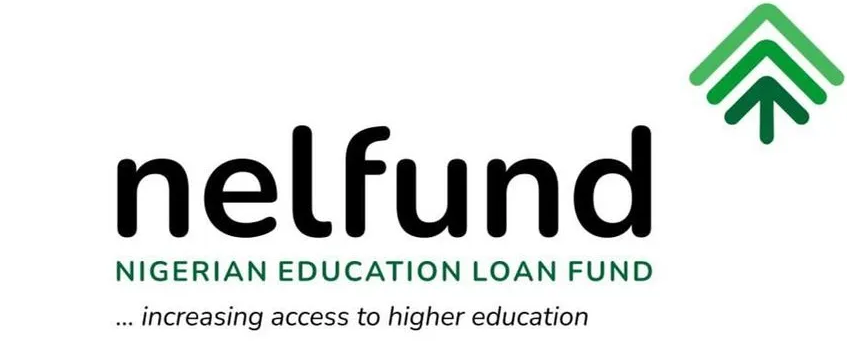

By Sodiq Adelakun
The Nigerian Education Loan Fund (NELFUND) has announced that up to 1.2 million students in federal tertiary institutions will be eligible for student loans in the program’s initial phase.
This was revealed on Monday by the Managing Director of NELFUND, Akintunde Sawyerr, ahead of the formal launch of the application portal on Friday.
According to Sawyerr, students from federal institutions that have completed uploading their data will be able to apply for the loan in this first phase, which begins on May 24.
The application process has been streamlined to ensure ease of access for all qualified students in these institutions.
The NELFUND program is a key part of President Bola Tinubu’s administration’s Renewed Hope Agenda, aimed at providing financial support to needy students. The loan will cover obligatory fees and stipends, enabling students to pursue their academic goals without worrying about the financial burden.
He also added that the Fund will pay 100 percent of institutional fees directly to the institutions of learning account while also providing stipends to the students monthly based on when school is in session.
He stressed the importance of some of the key features of the student loan including, No physical contact between the loan applicant and NELFUND, a user-friendly Loan Application portal, comprehensive support where applicants can access online support to assist and flexible repayment plans.
According to him, “We encourage all students in federal institutions to take advantage of this opportunity to secure the required financial assistance for their education. Applicants must submit their applications as early as possible to ensure timely processing.”
-
Finance4 months ago
Court orders Sen. Victor Umeh to repay N136m bank debt to AMCON
-



 Abuja Update3 months ago
Abuja Update3 months agoUNDP, FG partnership needed to achieve inclusion, equity- Minister
-
Abuja Update2 months ago
Banks drive stock market performance with N147bn gain
-
capital market2 years ago
Rt.briscoe, FBNH, Others halts negative performance of stock market
-
Submission Guidelines5 months ago
CALL FOR SUBMISSIONS: POETRY COLUMN-NND
-



 Health1 month ago
Health1 month agoCapacity training will reduce migration of health workers- NPHCDA
-



 Business4 weeks ago
Business4 weeks agoTingo Group unveils Tingo Electric, Tingo Cola drink at Lagos launch
-
News5 months ago
Oil thieves sponsoring malicious media campaign against Navy – Spokesman














